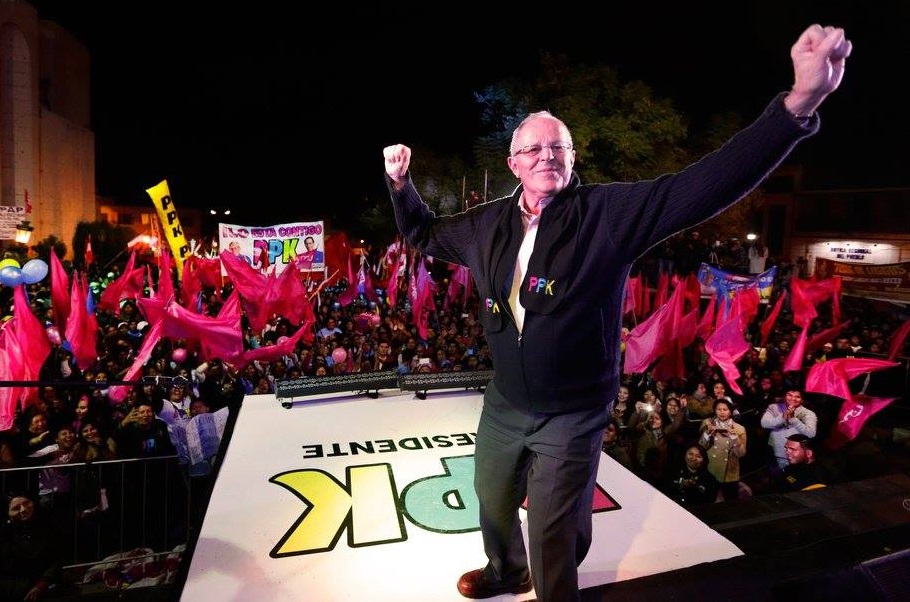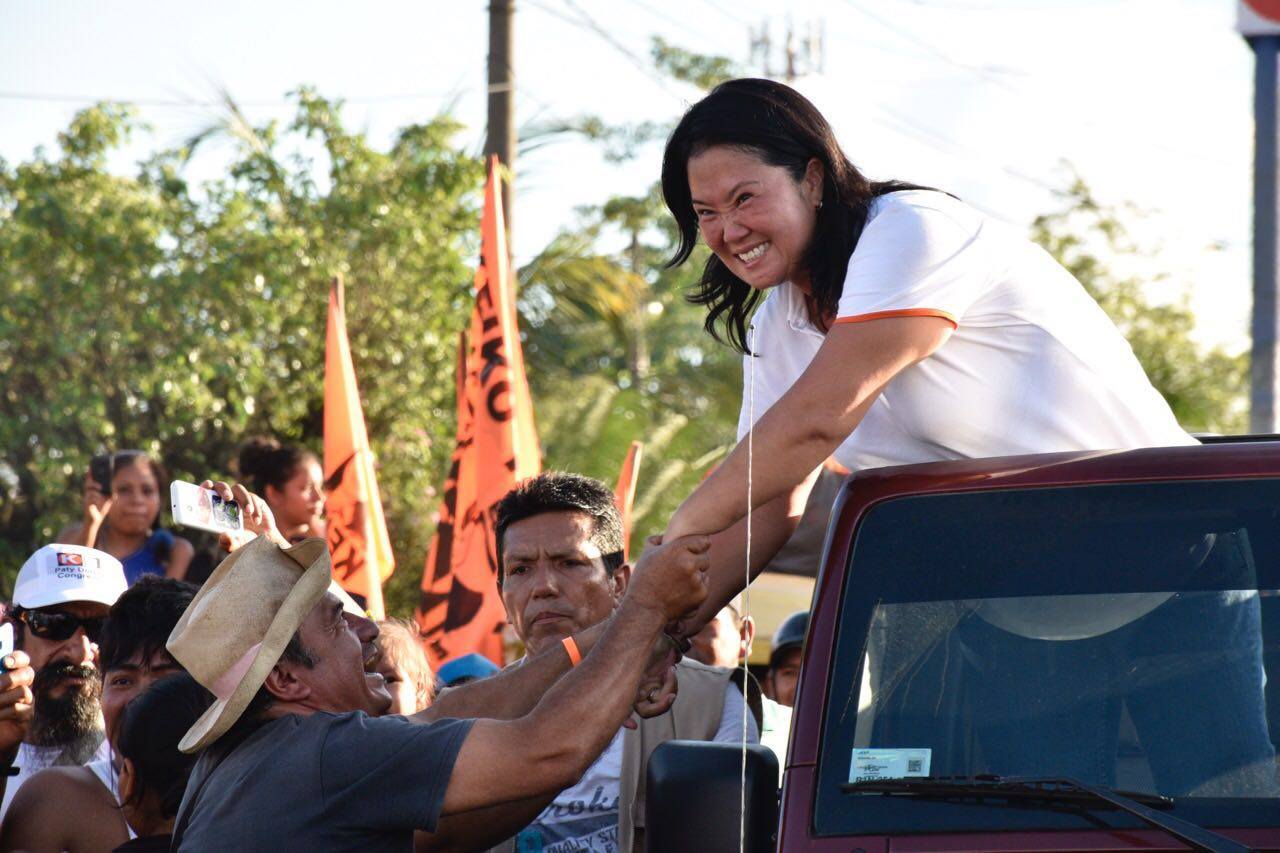
For the second time in as many elections, it’s looking like Keiko Fujimori will narrowly lose a runoff to become Peru’s president.![]()
With nearly 93% of the results counted, Fujimori was trailing behind economist Pedro Pablo Kuczynski, the 77-year-old former banker and International Monetary Fund official who served briefly as prime minister in the 2000s. Kuczynski, widely known across Peru by his initials, ‘PPK,’ was winning 50.32% of the vote to just 49.68% for Fujimori.
* * * * *
RELATED: PPK has chance to unite anti-Fujimori voters in June runoff
* * * * *
Though we do not know the exact results, and we might not know them until later today or this week, all signs point to a narrow victory for PPK, who placed third in the 2011 presidential election (behind Fujimori) and who trailed Fujimori by double digits in the initial April vote. Indeed, for years, the 2016 election seemed like it was Fujimori’s to lose. Kuczynski, an internationalist who seemed more at home in Washington, D.C. than in the Andean highlands, is not exactly a natural on the campaign trail. He took an incomprehensible break from the runoff campaign to visit New York (where he attended his daughter’s graducation, but where he also gave a speech to the Council on Foreign Relations, feeding the hype that he’s not ‘authentically’ Peruvian).
I hope that Suffragio will feature a guest post on the Peruvian election later this week. But in the meanwhile, here are some quick thoughts on what a PPK victory would mean for Peru. Continue reading PPK on track to win Peruvian presidency by a narrow margin
